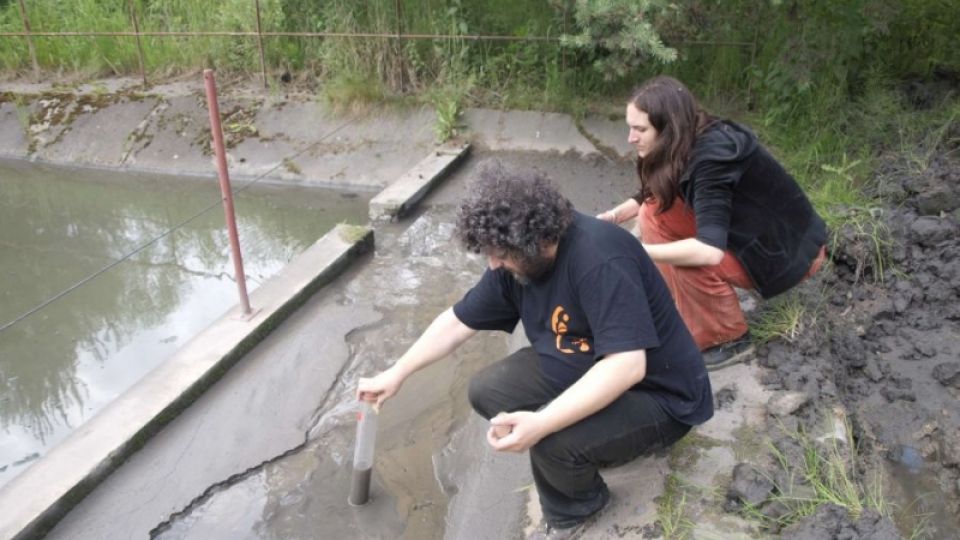The company Quail s.r.o. is not allowed to accept for treatment fly ash from hazardous waste incinerators anymore. The fly ash probably contributed to contamination by toxic dioxins and heavy metals, found by the Arnika Association in the vicinity of the plant in Hůrka near Temelín. The Regional Authority of the South Bohemian Region has issued an amendment of the integrated permit for the plant of the company Quail. Further, Quail has to prevent releases of any fly ash, in the form of dust and run-off, out of the plant premises. However, a proposal how to achieve this was presented by the company itself during the procedure already. The amendment, to a considerable extent, has satisfied the complaint of the Arnika Association which brought attention to the problem in its last year's study. Just in connection with the study publication, the company Quail brought a legal action against Arnika. However, the Arnika Association insists on correctness of its conclusions, and it is going to publish a new study within a few days.
„The measures Quail is forced to adopt will be certainly beneficial for the environment. However, in order to be perfect, treatment of fly ash from municipal waste incinerators and metallurgical plants would have to be forbidden, too. Such fly ash could also contribute to pollution in Hůrka to a considerable extent,“ explained the head of the České Budějovice branch of the Arnika Association, Mgr. Jitka Straková.
Arnika forwarded its suspicion that the company Quail behaved improperly also to the Czech Environmental Inspectorate (CEI). It made several investigations in Hůrka during 2016, and found that dust formation occurred during the material handling and solid pollutants from the waste were released out of the premises. According to the CEI assessment, this meant that waste was not secured against undesirable releases, and, thus, the Act on Waste was breached. Administrative proceedings according to the Act is going to be started with the company Quail s.r.o.
During the proceedings on integrated permit amendment, Arnika argued, among other things, that the company Quail accepted wastes in which dioxin concentrations exceeded the level set by the international Stockholm Convention on Persistent Organic Pollutants (1)(2).
„Quail tried to avoid its legal duty by stating that it worked in compliance with the laws. However, international conventions ratified by the Parliament form part of the legal order, and, moreover, the limits set by the Convention become part of our legal order through a European Union Regulation. Thus, Quail should also comply with the obligations ensuing from the Stockholm Convention, and it should not use technologies that only dilute wastes containing hazardous persistent organic pollutants into lower concentrations. It is essential to ensure irreversible elimination of these toxic substances,“ said the head of the Toxics and Waste Programme of the Arnika Association, RNDr. Jindřich Petrlík.
„Because of that, we welcome the Regional Authority decision forbidding Quail to manage fly ash exceeding the level set by the Stockholm Convention, “ added Petrlík.
The study describing pollution in the surroundings of the plant in Hůrka near Temelín was published by Arnika in the beginning of 2016. Currently, Quail has been trying, through the court, to force Arnika to declare its statements as mistaken, and to make an apology to the company. However, the environmental association has insisted that its findings were correct and relevant. The decision of the Regional Authority on the integrated permit amendment confirms that the risks are not seen by Arnika only. Regardless of the legal action and the Regional Authority decision, Arnika's experts continue their work at the problem. In a few days, they are also going to publish a new study on toxic pollution in the vicinity of the plant in Hůrka.
Notes:
(1) Stockholm Convention
The international Stockholm Convention was adopted in 2001 through the UNEP (United Nations Environment Programme). By its ratification, the signatory states accept the obligation to eliminate the most important persistent organic pollutants (POPs). The Convention was ratified both by the Czech Republic and the European Union. Arnika has been helping to meet the obligations according to the Convention both by regulating operation of waste management plants, and of other industrial activities in the Czech Republic and on the international level.
(2) POPs
Persistent organic pollutants (POPs) damage the immune system and some of them cause cancer. In very low doses already, they cause hormonal disorders and endanger reproduction of animals, including people. Due to their chemical stability, they persist in the environment for a long time, and, because of that, they can „travel“ even thousands of kilometres from the sources of their origin. They do not dissolve in water, but they dissolve in fats to which they bound - thus, they are bioaccumulative.







